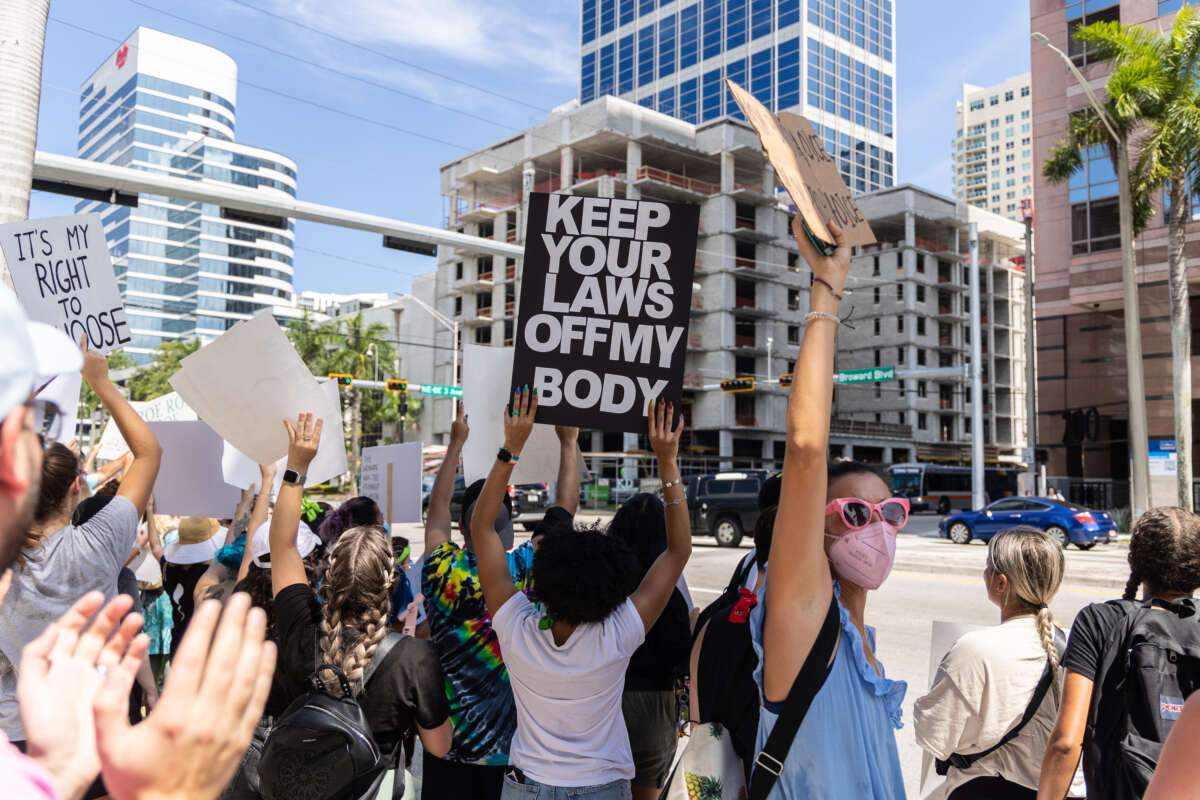An effort to enshrine abortion rights in the Florida state constitution is gaining steam, and will likely be included on the 2024 general election ballot if current trends hold steady.
However, the proposed amendment faces some hurdles before it can be accepted on the ballot, including passing muster in the state’s conservative Supreme Court.
For the petition to be considered, it must receive around 891,000 signatures from voters in the state. So far, the petition has received about 250,000 signatures, and is well on its way to passing the threshold by the end-of-the-year deadline.
If approved and included on next year’s ballot, the proposal would need to be backed by 60 percent of Florida voters in order to become an official amendment.
If passed, the proposal would result in significant changes to state law. Most notably, it would upend the restrictive six-week abortion ban that Gov. Ron DeSantis(R) signed into law this past spring. That bill also placed limits on abortions in cases of rape and incest, and only allows abortions during later stages of a pregnancy if a pregnant person’s life is at risk.
Such provisions have made many doctors and health care providers hesitant to provide abortions in emergencies, as it is often unclear whether abortion is considered necessary to save a person’s life under the law. If physicians wait too long to perform an abortion, pregnant people can face permanent health issues or even death.
The proposed amendment has broad support across the state, with internal polling from the organization managing the signature campaign saying that 70 percent of Floridians back its passage. But some abortion advocates have pointed out that there are still issues with the proposal — namely, that its ambiguous language will likely result in challenges from right-wing groups, and that its wording is not inclusive of all people who can get pregnant.
The proposed constitutional amendment reads, in part, that “no law shall prohibit, penalize, delay, or restrict abortion before viability or when necessary to protect the patient’s health, as determined by the patient’s healthcare provider.” Although fetal viability is generally accepted to be around 24 months, this ambiguity may help anti-abortion activists in their goal to block the proposal, since the state Supreme Court has the ability to block ballot initiatives if they deem them to be confusing to voters.
In a supposed effort to appear more bipartisan, proponents of the proposal have used terminology that is gender exclusive, disregarding trans and nonbinary people in the state who are able to become pregnant.
The amendment also wouldn’t change state law that requires parents to be notified if minors obtain an abortion — a standard that could threaten the safety and livelihood of children who need the procedure.
In response to these concerns, the group has said that it is dedicated to making compromises in order for the proposal to be passed.
“This is bipartisan,” Anna Hochkammer, executive director of the Florida Women’s Freedom Coalition, the group managing the signature campaign, has said. “We have people with no party affiliation. People who hate politics. People who are extremely left. People who are extremely right. People who are libertarian and think government shouldn’t exist. You name it.”
Beyond the group’s internal polling, a survey from the University of North Florida suggests that the proposal has a good chance of passing. Three-quarters of state residents (75 percent) are opposed to the current six-week abortion ban, that poll found, including 61 percent of Republicans.
